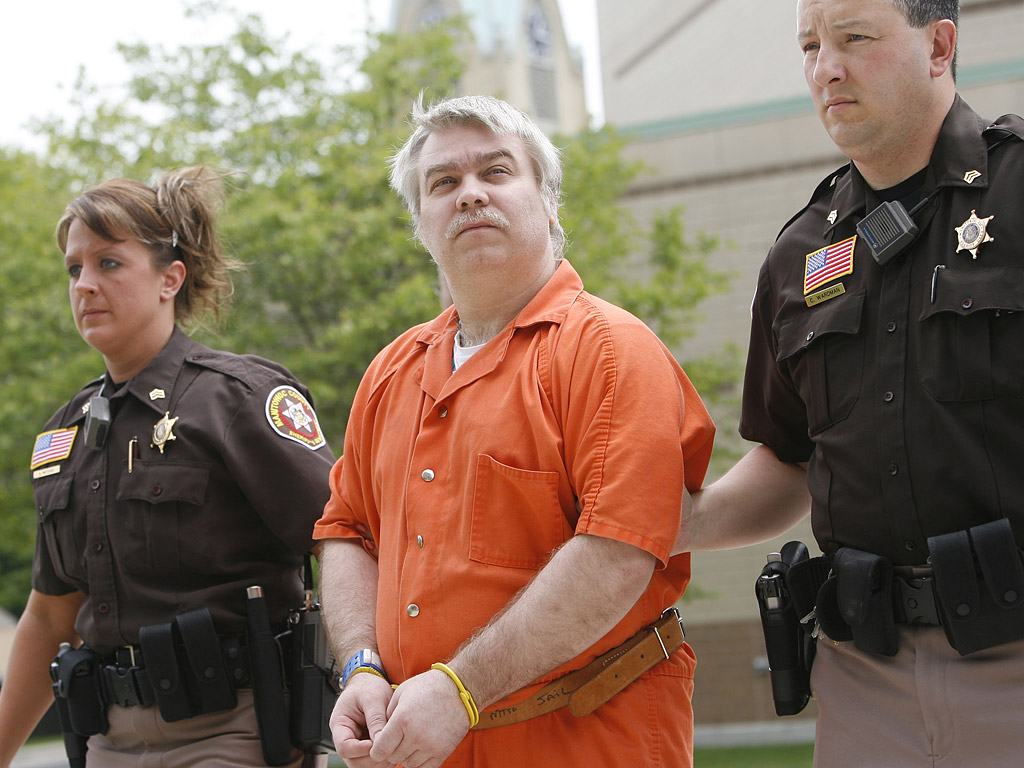If you’ve been Netflix and chilling recently, you’ve more than likely watched the gripping docu-series, Making a Murderer. And if you’ve watched it, you have an opinion about Steven Avery’s murder conviction which led to his life sentence without parole for the murder of Teresa Halbach.
Do you think Avery is guilty? Not guilty? Entirely innocent? We asked 12 college women to share their opinion on the prisoner.
![]()
“I honestly have no idea. I think he could be, but to me the show is about so much more than that — it showcases the way justice is often miscarried, how the presumption of innocence can be violated, and how poor and uneducated people are severely disadvantaged within the criminal justice system. So while I think there's a chance Steven did it, I firmly believe that both he and Brendan Dassey deserve new, fair trials.”
-Sarah, Boston College Class of 2019
“After recently finishing the series, I went through many periods where I thought ‘He's definitely innocent’ followed by ‘No, he so did it!’. It seems like that's exactly what the jury went through as well, since they began voting majority not guilty. In this case, I would have said Steven Avery was not guilty simply because I don't think the prosecution proved beyond a reasonable doubt that he was responsible. One thing is for sure, if I'm ever in trouble I want Dean Strang and Jerome Buting on my case.”
-Logan, Virginia Commonwealth University Class of 2019
“Steven Avery is guilty. The paternal side of my family is from Wisconsin and my roommate is from Manitowoc, because of this they know the actual reports, not the documentary that was made which focused on the Avery family. They left out so many details, that the jury knew, that were crucial. For example, they mention that Avery burned a cat, but they neglected to mention that they tied it up, beat it, dosed it in gasoline, and when it tried to escape the fire he and his friends stepped on it. Clearly, this proves that the Avery's are not men that are brought up to respect the sanctity of life, so why would Halbach be any different?”
-Chelle, DePaul University Class of 2018
“He's innocent! There’s no way the Sheriff's department could have paid the $36 million that Avery was suing them for, so they framed him to get out of paying reparations. The vial of Steven's blood was found open and tampered with!!”
-Paige, Tufts University Class of 2019
“I honestly have no idea whether or not Steven Avery is guilty of murder. I think that there is pretty solid evidence for both sides. I don't think that there is a clear-cut answer but Steven Avery definitely should not have been convicted when there was such a clear reasonable doubt.”
-Rachel, SUNY New Paltz Class of 2016
“I don't think that I currently have a stance on Avery. While I think it is questionable that a man who spent 18 years in prison after being wrongfully convicted would enter into a lawsuit and then murder a woman, I suppose anything is possible. I have not done enough research to have a properly formed opinion, but my preliminary opinion seems to be that it sounds like a case of law enforcement needing a scapegoat for a case going cold and this man happened to have lower than average intelligence and be from an impoverished family that would not have the money to fight a case of this magnitude adequately.”
-Cieara, Boise State University Class of 2018
“I don't think he's guilty because of his full intent to continue research and learn law to prove that he isn't. I don't think a guilty man would take that initiative. I also don't think the stories add up in any chronological order. I haven't done outside research too much, but I don't think the evidence was strong enough to put him or Brendan away.”
-Brook, Ohio University Class of 2017
“I don't think he is guilty. Yes, he might have had aggression issues, but there was a severe lack of evidence involving him in the case. What really convinced me was the lack of blood and any DNA in the bedroom, bed and garage. I am just so shocked at the jury, justice system and police officers of Manitowoc. My best bet is that the brother did it. He seemed super suspicious and way too gung-ho to accuse Avery. Plus how did he just ‘guess’ Teresa's voicemail password? And for exactly what purpose other than to erase messages?”
-Alani, Northwestern University Class of 2018
“It was actually the case of his nephew, Brendan Dassey that shocked and saddened me the most. He was clearly manipulated and didn't have the mental capacity to understand the seriousness of the situation — he thought he'd be home in time for Wrestlemania — it just makes me so sad that not enough is done to protect people who, at the hands of the police, have little power to defend themselves in cases that are as complex as this one.”
-Naomi, Nottingham University Class of 2016
“I do not think Steven Avery is guilty. However, I do believe he knows more than he says he does. There was much evidence that was not featured in the Netflix documentary, which was critical to the overall investigation and trial. I think Steven is cognitively impaired, as well as his nephew. They have little to no sense of how to defend themselves in a proper manner, which did not help them in their cases.”
-Margaret, Fordham University Class of 2016
“After watching all of the Making of a Murderer episodes, I think Steven Avery is not guilty. I think the Manitowoc County Police performed an inadequate investigation where they completely missed other suspects that could be guilty. I think an investigation of the boyfriend, roommate, and other family members that live on the property was essential and they failed to do that. I also think there is more than enough incentive for the Manitowoc police to plant evidence at Steven Avery's home. They should not have been allowed to be on his property for several days at a time and they also should not have allowed for the same officers who were on his last case to be working the new case.”
-Mariana, Wake Forest University Class of 2016
“Despite the verdict, one thing is clear: there is doubt. According to our judicial system, a defendant is innocent until proven guilty. This means jurors had to be convinced ‘beyond reasonable doubt’ that Avery was guilty in order to convict him. I think this was a mistake. There is too much evidence suggesting the Sheriffs department planted evidence against Avery. There is too much evidence suggesting Avery may not have done it. This might not prove Avery's innocence, but it should have certainly been enough to convince jurors that there wasn't sufficient evidence to convict Avery of murder.”
-Patricia, Northeastern University Class of 2016






























































































































